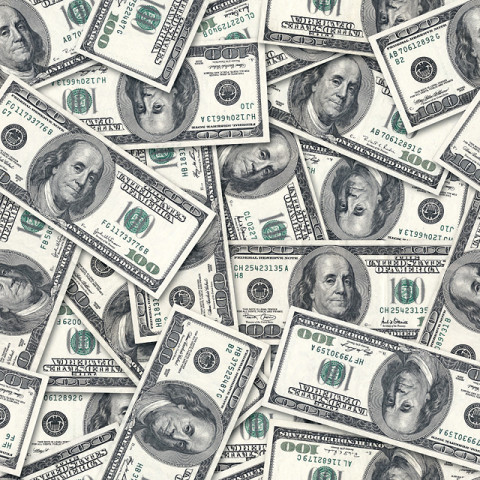$1b foreign loan deal reached
Disbursement of five-year commercial loan subject to approval of ADB guarantee

Pakistan and two foreign commercial banks have reached an understanding for a $1 billion loan at an interest rate of around 7.6%, which Islamabad is obtaining on the back of Asian Development Bank (ADB) guarantee due to its low credit rating.
The final term sheet and loan disbursement are subject to the approval of the ADB's $500 million guarantee, which the board of the Manila-based lending agency will approve on May 28. Pakistan can borrow up to $1.5 billion foreign commercial loan against the $500 million guarantee, said government sources.
Ministry of Finance spokesperson Qumar Abbasi did not respond to a question on whether an understanding had been reached between the government and two foreign commercial banks for the ADB-backed $1 billion loan.
Sources said that the government had negotiated a $1 billion loan for five years. It will be the first foreign commercial deal to be signed for a period of five years, which would reduce refinancing risks.
The deal is being negotiated with the Standard Chartered Bank (SCB) and the Dubai Islamic Bank (DIB), said finance ministry officials. They said that the country would pay interest rate equal to the Secured Overnight Financing Rate (SOFR) plus 3.25%. This translates into roughly 7.6%, which is a floating rate and will change with fluctuations in the SOFR.
The foreign commercial banks will complete procedural formalities after the approval of ADB guarantee next month. The government expects that the loan will be disbursed in the second half of June, which will also boost its foreign exchange reserves before the end of the current fiscal year.
Pakistan's gross reserves stand at $10.6 billion, which the government wants to increase to over $14 billion by the end of June. The reserves will rise on the back of better-than-expected remittances, $1 billion in new commercial loan and $1.3 billion worth of refinancing of Chinese loans, the sources said.
The ADB will charge a nominal upfront fee for giving the guarantee. Despite a recent rating upgrade, Pakistan's credit rating still remains low at B negative, which is two notches below the investment grade. Fitch upgraded Pakistan from a substantial default risk to a high risk of default rating.
Finance Minister Muhammad Aurangzeb held a meeting with Moody's credit rating in Washington and briefed them on Pakistan's fiscal and current account surpluses, declining inflation, stable exchange rate, and foreign reserves. Discussions also covered the Panda Bond initiative, with both sides agreeing to explore future collaboration. Moody's is expected to improve Pakistan's rating in the first week of May.
In September last year, the government had accepted the term sheet of SCB, London, for two loans totaling $600 million at the highest interest rate of around 11%. After a story appeared in The Express Tribune, the government deferred the deal until improvement in the overall macroeconomic conditions. Pakistan's external sector has stabilised and the current account deficit projection has been slashed from $3.7 billion to just $400 million by the IMF. This has reduced the foreign loan requirement.
For the current fiscal year, the government has budgeted $3.8 billion in foreign commercial loans but so far it has received about $500 million, mainly arranged by a local commercial bank due to the low credit rating.
Saudi Arabia has also not yet disbursed $100 million per month under the deferred oil payment facility due to procedural delays on part of Pakistan. Pakistan and Saudi Arabia had signed a $1.2 billion loan deal for buying oil on deferred payments two and a half month ago. Islamabad will pay 6% interest on the loan that it will use to buy crude oil from the kingdom. The monthly utilisation is capped at $100 million.
Finance Minister Muhammad Aurangzeb on Tuesday met Sultan bin Abdulrahman Al-Murshid, CEO of the Saudi Fund for Development (SFD), on the sidelines of World Bank-IMF annual meetings.
"Aurangzeb requested the expedited disbursement of funds under the Saudi oil facility, assuring prompt submission of oil shipment documents," said a statement issued by the Ministry of Finance.
The oil facility became effective a few days ago after Aramco and two Pakistani oil refineries signed the operational deal. However, these refineries have not yet submitted shipment documents.
The finance minister requested the Saudi Fund for Development to give a loan for the construction of N-25 highway in Balochistan, the Ministry of Finance stated.
Last week, Prime Minister Shehbaz Sharif imposed an additional levy of Rs8 on every litre of petrol and Rs7 on diesel to fund the N-25 highway. The N-25 starts from Karachi and ends at Chaman border. The government expects to raise Rs120 billion by putting the additional burden on every user of petrol and diesel.
For the current fiscal year, the government has budgeted $23.4 billion in foreign loans, including $13 billion worth of rollovers by China, Saudi Arabia, the United Arab Emirates and Kuwait. Pakistan has paid back a $1.3 billion Chinese commercial loan on the understanding of getting it refinanced soon.
Aurangzeb also held a meeting with Deutsche Bank and expressed Pakistan's interest in returning to financial markets, including the issuance of Panda and ESG bonds, based on the country's improved macroeconomic stability and credit rating.























COMMENTS
Comments are moderated and generally will be posted if they are on-topic and not abusive.
For more information, please see our Comments FAQ